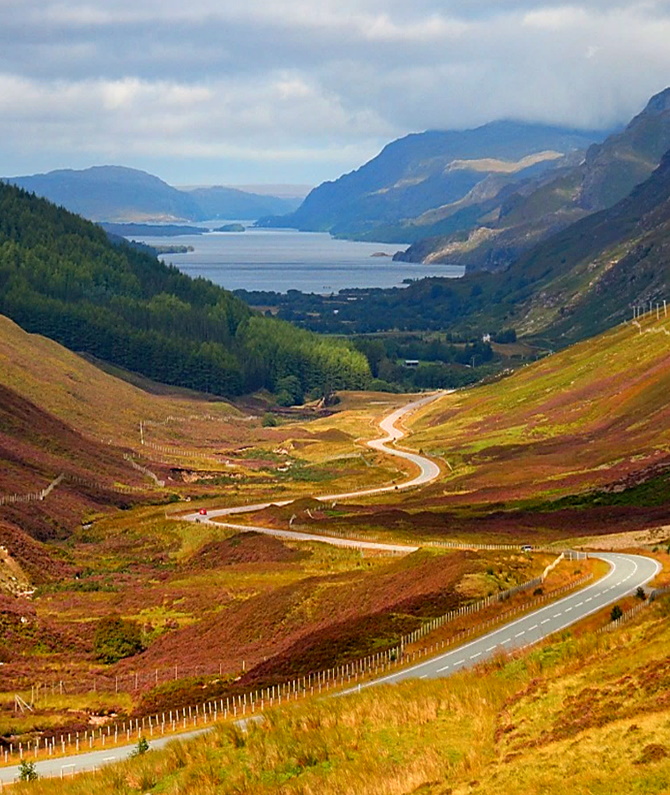
The road to Loch Maree.
Seating capacities are rarely an issue on a golf trip. Luggage however is. Golfers invariably require a bigger vehicle than their bare number suggests they should. A majority of clients choose to self-drive. Doing so has many advantages, cost being just one. If you’ve got St Andrews in your itinerary (and most do) self-drive affords you the extra flexibility to respond to the changing picture associated with ballot results. Self-drive puts you in control of your own programme in-situ. In common with a lot of operators, self-drive is our default offer. Unless you really have a deep aversion to self-driving, it normally represents the best option.
Faraway Fairways also offer third party hired drivers. The big advantage to this option is that someone else familiar with the roads and driving conditions takes the responsibility. You will however lose a lot of flexibility, particularly in the evenings. Even with a driver with whom you hit it off, it’s never quite the same as being in your own friendship group. Finally, hired drivers are usually more expensive
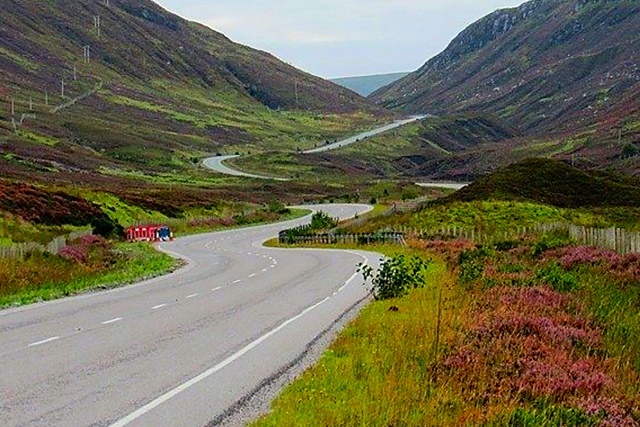
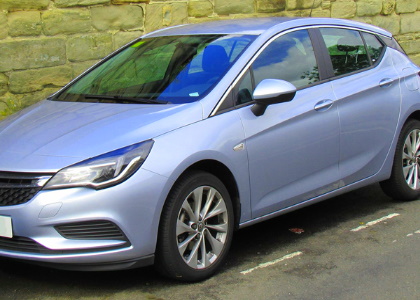
A two ball party should be looking to use a ‘large estate car’. A single person can use a 'saloon' Three is the number whereby we have to use a nine-person MPV
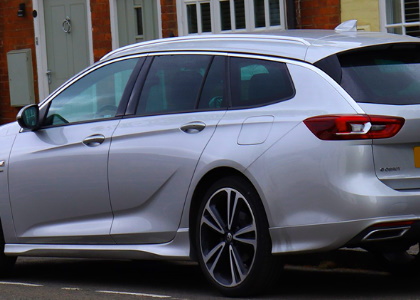
An MPV has luggage capacity for nine items (four players with a golf bag and suitcase each). Tee times are of course sold in fourballs. It works out well.
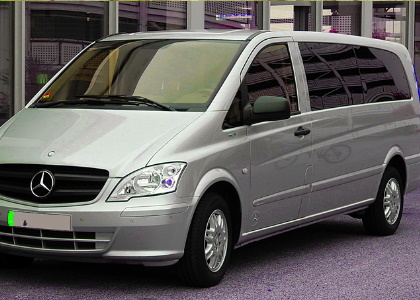
It's possible to operate a multiples of four strategy in convoy, but eventually we might need a larger capacity midi-bus/ coach.

The Forth Railway Bridge.
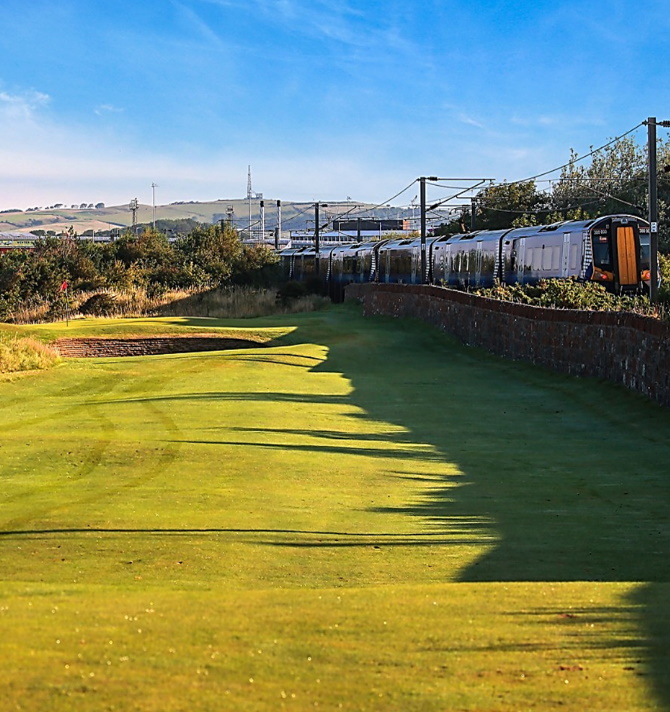
Prestwick, 'The Railway' hole
The train enjoys a special relationship with Scotland’s golf links, being responsible for the development of so many of them, circa 1880 – 1895. This legacy means that it does become an occasional option for playing a few select courses if you wanted to reduce the driving burden. Prestwick (150 yds), North Berwick (200 yds) and Carnoustie (400 yds) all have stations within walking distance of the course. Despite its mileage, Royal Aberdeen can also come under consideration if staying in central Edinburgh
St Andrews doesn’t have a station. The nearest is at Leuchars, (12 mins away). There is a good service into Edinburgh however which non-golfers are encouraged to use rather than driving into capital
Tours that combine with Ireland involve crossing the Irish Sea either by ferry or plane. The modern, high speed ferry service, between Belfast and Stranraer takes a little over 2 hours. The ferry between Dublin and Holyhead takes 4 hours, whereas Dublin to Liverpool is an overnight ‘sleeper’. Sea crossings do run an enhanced risk of travel disruption however. Services won’t normally sail in ‘rough’ conditions.
Our ‘Wilderness’ tour is more complex. It involves six ferries linking up the western isles. We have less scope for mitigation against cancellations here – you can’t fly your car off an island! These are remote locations and a degree of logistical risk exists to experience it. Every now and then we will face a cancellation and need to ‘sit it out’ and wait for things to improve. We expect to be able to absorb 24 hours of disruption and recover
In order to play Machrihanish on a day-trip we need to fly from Glasgow to Campbeltown. The journey takes about 50 mins, and its a 10 min transfer then to Machrihanish.
The twin engine ‘Otter’ is the workhorse of the Highlands and Islands. It has proven to be durable and reliable. They even land them on beaches in the far north! Don’t worry, Campbeltown has a conventional runway. Flights to both Machrie and Askernish also exist from Glasgow too
Flights between Dublin and Scotland use jet engines and are operated by Aer Lingus, RyanAir or Easy Jet. The journey takes about an hour
Perhaps the best way of getting around Edinburgh is to use the 24/48 hour, ‘hop-on/ hop-off’ tour bus rover ticket. Three bus operators serve a circuit featuring fourteen stops that take in the city’s principal attractions. The ticket is inter-changeable between all three. You simply buy your ticket for unlimited use and begin hopping on and hopping off, on what is otherwise hilly city and not necessarily ‘car friendly’
Edinburgh also has a modern tram system that serves the airport. Dublin has a local commuter train (the DART)
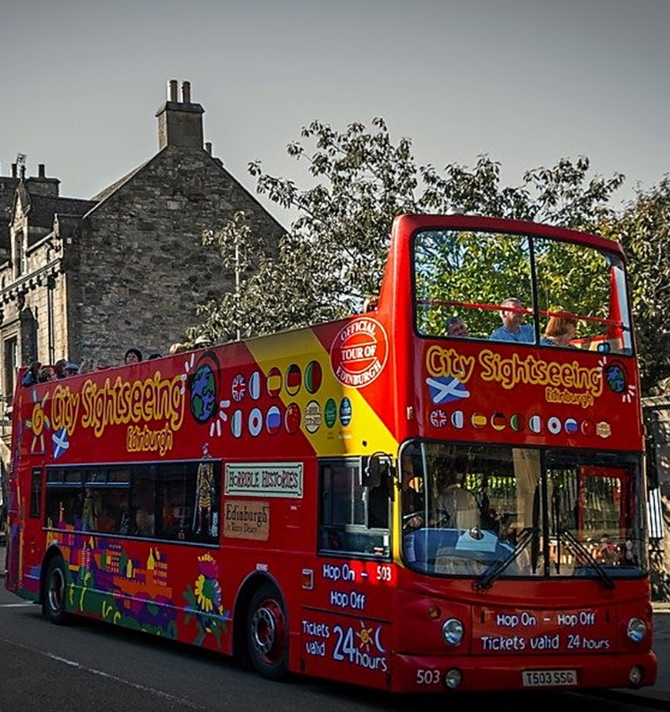
Edinburgh tour bus.